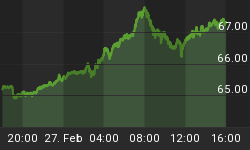The LIBOR scandal rolls on in the UK, eagerly observed by the rest of the world. This scandal has reached mammoth proportions and has become deeply political with politicians past and present rushing to tell the media: 'nothing to do with me'.
What people in the UK seem most upset about is 'the greed of bankers', but I think what this feeling is really articulating is ire at the rewards for greed in an industry that enjoys an implicit state back-stop. Us Brits have little issue with the likes of Richard Branson, James Dyson or Alan Sugar earning large amounts of money; these individuals' futures are properly governed by the success of the decisions they make.
It's all about the money
The LIBOR scandal is at the very heart of our financial system, the apparent manipulation of the cost/price of money itself according to political and profit motives. Money is the basis of society, the great facilitator, the measuring stick. What should upset people in the UK most is the fact that the value of the pound, the cost of money, and financial instruments that affect us can potentially be fiddled. Could it be this scandal feels typical of this contemporary era of 'high finance'?
However, greed and at least a profit motive are just parts of human nature; remember our general respect for the entrepreneurs mentioned above. The problem here is greed being found on the banking gravy train, a locomotive that is bailed out by taxpayers when it goes off the rails. Normally greed and hubris, where they contribute to a resulting misallocation of capital, are punished by market discipline.
When digesting the LIBOR scandal, and hearing more neo-Keynesian clap trap from the likes of Paul Krugman, I couldn't help but remember why I was drawn to the Austrian school of economics.
Is there another way?
The still largely overlooked Austrian way of thinking is one that recognises humans and the heart of everything. There is no use devising systems and rules, if the humans existing within their frameworks are not properly understood. It seems to me the classical school of economics (e.g. Austrian) is concerned with what does happen, whilst the contemporary neo-classical school (e.g. Keynesianism) forgets humans, has become deeply financialised and thinks only of what ought to happen 'ceteris parabus'.
Amongst other things, the Austrian way of looking at the world requires small government, sound money and individual liberty. It recognises greed and folly. It is not a depressing world view, but one that is down to earth and celebrates our strengths and seeks to restrain our flaws.
One of the most appealing parts of the Austrian economic way of thinking is the insistence on sound money. Sound money is generally backed by a commodity, and circulates outside the influence, manipulation of politicians, central bankers et al. Throughout history this commodity has usually been something rare, inert and durable. Gold and silver have proved most fit for purpose, although other commodities have been tried (pepper corns, spices, bails of tobacco etc). Gold and silver, being of nature, provided a serenely independent measurement for exchanging value.
Sound money, outside of manipulation, interference and printing, is essential to freedom, and to provide a constant and uniform measuring stick for trade and commerce. It is the greatest form of financial discipline. Detractors falsely cite that we should not 'crucify mankind upon a cross of gold', being mistaken in the use and context of William Jennings Bryan's quote, but sound money actually prevents all sorts of abuses and imbalances. It removes political influence from the monetary system, prevents governments pursuing inflationary policies and saddling future generations with debt, prevents the growth of huge trade imbalances, limits the ability of government to bail out certain industries, and generally provides a level playing field to the monetary system.
Compare and contrast
The high point for sound money could be seen as the Classical Gold Standard of 1870 to 1913. This was a period of almost no inflation, with increased productivity, rising living standards and without increasing unemployment. It was said to be the first age of globalisation. Contrast that to today where inflation is ever present, living standards in the West are declining and unemployment is high.
What the recent LIBOR scandal really shines light on is the (mis)management of interest rates and currencies. The dollar managers of the world have been exporting inflation and living beyond their means for some time, and buyers and users of dollars have had to react accordingly. Remembering Jim Grant's quote, the 'gold price is the reciprocal of faith in central banks', suggests this 12 year bull market is a reflection of declining confidence in the managers of paper money.
The LIBOR scandal is just another straw to add to the camel's back, in terms of confidence in the current monetary system. The pound may not be a reserve currency anymore, but it is important nonetheless. Interest rates affect the value of our money, when it appears this can be fiddled it's no wonder savers thinking of holding their savings in other forms. Gold bullion anyone?
Want to buy gold as an insurance against banks and their decisions? Invest in gold like a professional in minutes...















